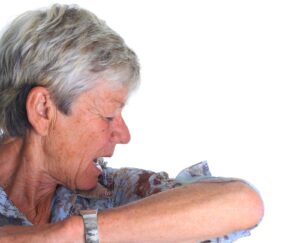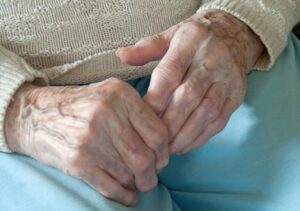Seniors and Health Issues
What Can Families Do to Help Seniors Avoid Boredom and Depression?
Boredom and depression are two issues that seniors face every single day. If they don’t figure out how to get a handle on these issues, seniors can struggle mightily and find their mental and physical health worsening. Companion care at home can be a powerful way for families to help their aging adults deal with…
Read MoreThe Most Common Reasons Why Seniors Don’t Want To Eat
If you have noticed that your senior parent seems to be losing their appetite, you could be right. It can be a challenge to get seniors to eat enough to stay healthy. Malnutrition is a very common problem in seniors because many seniors just aren’t eating enough. They also could be eating the wrong kinds…
Read MoreHow Home Care Assistance Helps Seniors Manage Their Blood Sugar
Diabetes is very common in senior adults. As humans age, the pancreas produces less insulin, which means that blood sugar remains elevated for longer. Estimates are that more than 20 millions seniors have diabetes. If your senior parent has Type 2 diabetes, you already know how important it is that they manage their blood sugar.…
Read MoreHow Does Home Care Assistance Reduce Stroke Risk?
Stroke prevention might seem to be one of those things that is out of anyone’s hands, but there are lots of choices seniors can make that do help to reduce stroke risk. Home care assistance can go a long way toward ensuring that seniors have all the help that they need to make the right…
Read MoreDigestive Wellness for Seniors: A Guide to Overcoming Common Issues
With age, the body undergoes various changes, and one area that often requires special attention is digestive health. Seniors commonly face digestive issues that can impact their overall well-being. Fortunately, there are simple and effective ways to address these concerns and promote digestive wellness. In this blog, we’ll explore some common digestive issues among seniors…
Read MoreWhy Do Seniors Tend to Deal with Chronic Runny Nose?
Lots of seniors find themselves suddenly dealing with a chronic runny nose. It’s an embarrassing problem and it can be irritating, too. Rhinitis is the medical term for irritation and inflammation of nasal membranes, which can lead to sneezing, stuffiness, and even a runny nose. Sometimes this condition goes away as quietly as it arrived.…
Read MoreHome Remedies That Can Help Seniors Soothe Dry Eyes
Dry eyes can be painful, itchy, and very uncomfortable. Seniors often develop dry eyes as a result of the medications that they need to take. But dry eyes can also be caused by allergies, dry indoor air, not getting enough sleep, or spending too much time watching screens. Seniors that have chronic dry eyes have…
Read MoreThings to Know About Epilepsy on Epilepsy Awareness Day
Epilepsy Awareness Day, also known as Purple Day, is a day for raising awareness of the facts regarding epilepsy. Epilepsy is a disease where signals in the brain become disturbed, triggering a seizure. These are the facts you should know about the disease and how home care can help your senior manage it. Epilepsy Affects…
Read MoreHow Personal Care At Home Helps Seniors With ALS
Seniors who have ALS may think that they can’t spend their remaining years at home because of the side effects. As ALS progresses, the side effects of this disease like weakness in the ankles, feet, and legs, trouble swallowing, trouble gripping things, trouble walking, and cognitive problems will get worse. But with personal care at…
Read MoreFive Things Your Senior Needs to Know about Arthritis
Arthritis is incredibly common in both older and younger people. For your senior, it can be disheartening to find that joints she used to rely on are now in a lot of pain and don’t function the way that they used to. In some advanced cases of arthritis, having help from in-home care providers can…
Read More









